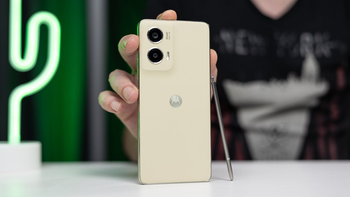ChatGPT creator nears development of its own chip tailored for AI tasks

Generative AI is skyrocketing at an incredible rate, and one of the standout players in this space is OpenAI, the brains behind ChatGPT. Like many other startups in the field, this Microsoft-backed company is pouring millions into optimizing its AI capabilities.
While chipmakers like AMD and NVIDIA are rolling out processors designed specifically for AI tasks, OpenAI believes it can develop its own custom AI chip.
A recent report reveals that OpenAI has updated its hardware strategy. The company is teaming up with Broadcom and TSMC to develop its first in-house chip specifically designed to support its AI systems. In addition to that, OpenAI is incorporating AMD chips alongside Nvidia to keep up with its growing infrastructure needs.
According to unnamed sources, OpenAI has explored various options to diversify its chip supply and cut costs. At one point, the company even considered manufacturing everything in-house and securing funding for an ambitious plan to establish a network of factories, referred to as "foundries," for chip production.
However, it seems the company has put its ambitious foundry plans on hold for now, mainly due to the costs and time required to establish a network. Instead, it will focus on its in-house chip design efforts. As one of the largest chip buyers, OpenAI's choice to source from a variety of chipmakers while developing its custom chip could have wider implications for the tech sector.
According to sources, OpenAI has been collaborating with Broadcom for months to develop its first AI chip focused on inference. While there's currently a higher demand for training chips, analysts expect the need for inference chips to surpass them as more AI applications emerge. Through Broadcom, OpenAI has reportedly secured manufacturing capacity with Taiwan Semiconductor Manufacturing Company (TSMC) to produce its first custom-designed chip by 2026, although this timeline could change.

Nvidia's GPUs currently dominate the market with over 80% share. However, rising costs and supply shortages have prompted major customers like Microsoft, Meta, and now OpenAI to explore both in-house and external alternatives. I think this shift could turn out to be a wise strategy, as relying on a single supplier isn't always the best approach.
In other OpenAI-related news, the company is said to experience $14 billion losses by 2026. Despite its significant growth and rising demand for AI models, the company is expected to stay unprofitable until at least 2029.
While chipmakers like AMD and NVIDIA are rolling out processors designed specifically for AI tasks, OpenAI believes it can develop its own custom AI chip.
OpenAI teams up with Broadcom and TSMC for its first chip
A recent report reveals that OpenAI has updated its hardware strategy. The company is teaming up with Broadcom and TSMC to develop its first in-house chip specifically designed to support its AI systems. In addition to that, OpenAI is incorporating AMD chips alongside Nvidia to keep up with its growing infrastructure needs.
However, it seems the company has put its ambitious foundry plans on hold for now, mainly due to the costs and time required to establish a network. Instead, it will focus on its in-house chip design efforts. As one of the largest chip buyers, OpenAI's choice to source from a variety of chipmakers while developing its custom chip could have wider implications for the tech sector.
OpenAI, a key player in commercializing generative AI that generates human-like responses, requires significant computing power to train and operate its systems. As one of the top buyers of Nvidia's graphics processing units (GPUs), OpenAI uses these AI chips for both training models – where AI learns from data – and inference, which involves applying AI to make predictions or decisions based on new information.
According to sources, OpenAI has been collaborating with Broadcom for months to develop its first AI chip focused on inference. While there's currently a higher demand for training chips, analysts expect the need for inference chips to surpass them as more AI applications emerge. Through Broadcom, OpenAI has reportedly secured manufacturing capacity with Taiwan Semiconductor Manufacturing Company (TSMC) to produce its first custom-designed chip by 2026, although this timeline could change.

ChatGPT capabilities have improved a lot ever since its launch. | Video credit – OpenAI













Things that are NOT allowed: